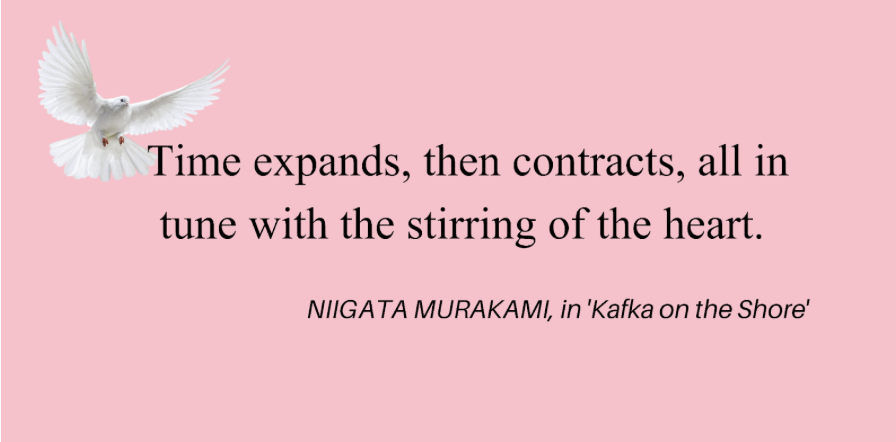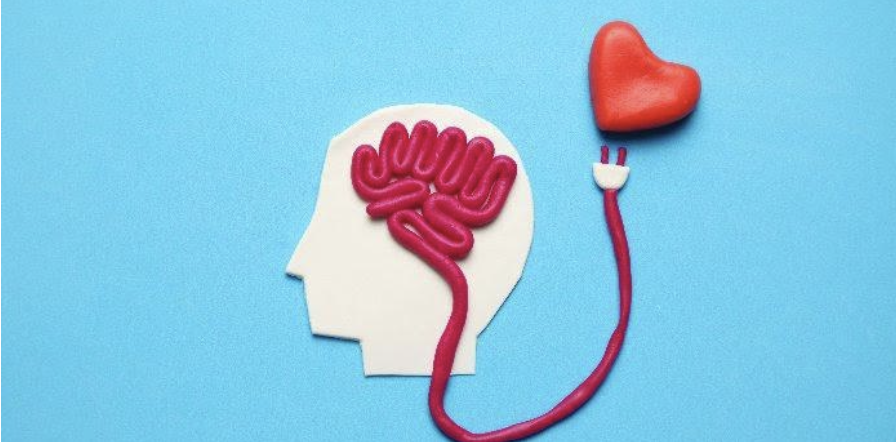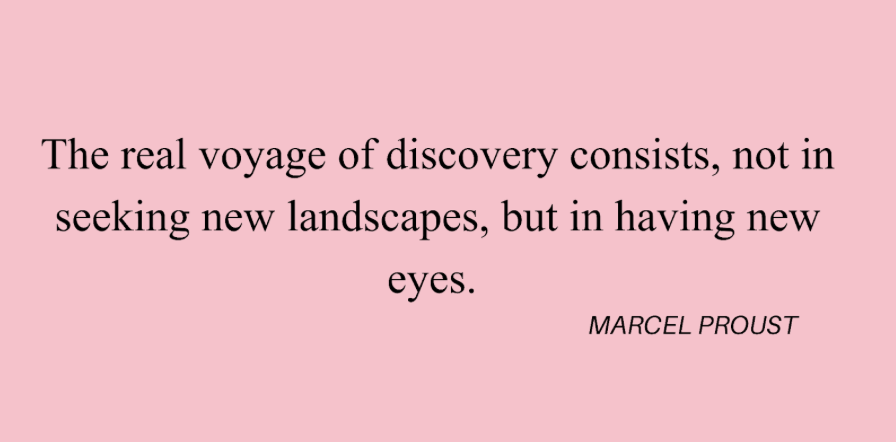
Ancient peoples held a widespread belief that our heart, rather than our brain, was truly the centre of our being.
This year new research showed that heat energy signals also change our perception of time!

We all know that familiar feeling of time racing by when we’re on holiday, having a great time playing sports or simply really enjoying ourselves. We also know that it seems to drag when we are waiting in queues, traffic jams or trying to get some boring task completed.
Dr. Irena Arslanova (who came up with the Murakami analogy above) and Professor Manos Tsakiris at Royal Holloway, University of London, U.K., recently published research showing that our heart send signals to our brain on every single heartbeat providing vital information about the state of our body. They studied the systolic phase (heartbeat) when the heart contracts and sends blood around the body, and found it was also sending information to the brain. They also studied the diastolic phase (between heartbeats) when it relaxes.
These studies were done by showing research participants various images whilst monitoring their hearts.
TIME CHANGES IN DIFFERENT HEART PHASES, RELATED TO CONSCIOUSNESS
The two interesting findings were that the participants’ perception of time was speeded up during the heartbeat muscular contraction, systolic phase. Time moved faster!
In addition, when participants were shown emotional faces instead of expressionless faces they thought time had moved more quickly. In other words, our perceptions and reactions to emotionality make time appear to move faster.

This just shows that our perception of time is constantly influenced by internal biological and emotional states. We can’t separate those two, the physical and the conscious state, due to mind-body neurology and hormone patterns moving in flux, which interact and influence each other to the point that we (may) no longer perceive there even has to be a chicken or an egg.
Of course this has relevance in the area of sports performance, or even music and anything regarding highly timed and skilled performance, as well as the area of mental health such as depression or anxiety when our perception of time also changes.

We’ve used the word perception a lot here. It’s very relevant in consciousness studies as what we think is real is real – for us at least. We watch a scary movie, and our biology responds by increasing our pulse.
Our friend doesn’t find it at all scary and her pulse is unchanged. We do something super relaxing and our blood pressure reduces. These easily monitored and important medical parameters are governed by, and reactive to, our perceptions.
